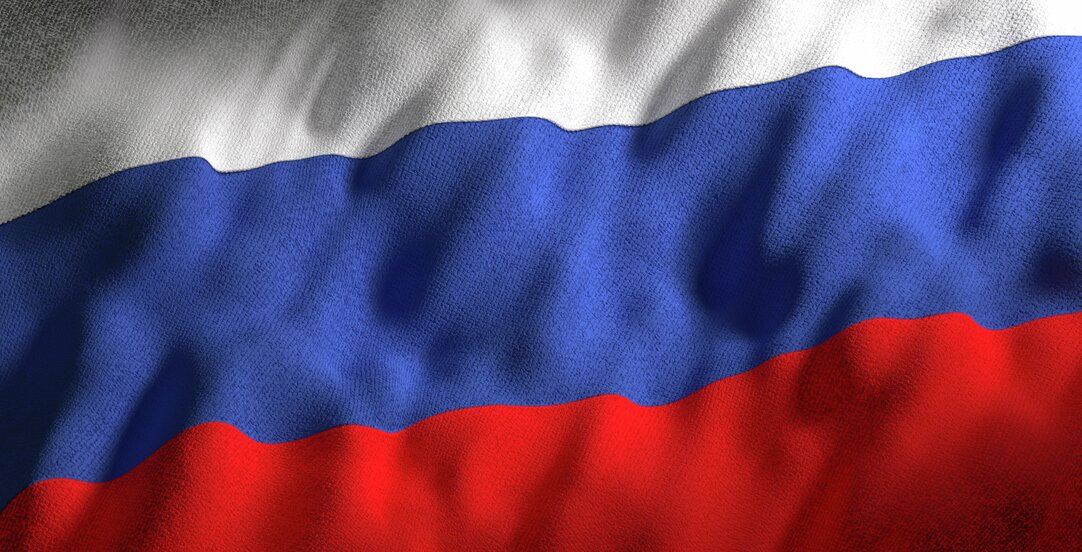Additional Russia-related sanctions from the EU, UK, US and Norway and developments in Russian countermeasures

Since our last update on 21 April 2022, the EU has adopted its sixth Russia related sanctions package, while Norway has aligned its sanctions regime with the EU's fifth sanctions package. Furthermore, the UK and US have introduced additional sanctions, and Russia has developed its countermeasures.
Lesetid 11 minutter
We summarise the main points from these developments below.
Norwegian sanctions
On 29 April 2022, Norway adopted additional Russia related sanctions by implementing the EU's fifth sanctions package (which was adopted by the EU on 8 April 2022) with certain national adaptations.
In summary, and as further described in our previous update on 11 April 2022 in relation to the adoption of the EU's fifth package, these measures broadly include:
- Port access: Prohibition from providing access after 7 May 2022 to Norwegian ports (excluding ports in Svalbard, Jan Mayen and the Norwegian dependencies) to defined vessels registered under the flag of Russia (and to such vessels that have changed their Russian flag/registration to the flag/register of another state after 24 February 2022), cf. section 19a.
This prohibition largely mirrors the EU prohibition in article 3ea of Regulation (EU) 833/2014. However, to the contrary of the EU prohibition, the Norwegian prohibition expressly states that it does not apply to fishing vessels. To the extent an equivalent carve-out for fishing vessels is not (implicitly) applicable within the EU, Norwegian authorities have confirmed that the national carve-out will still be applicable within Norwegian jurisdiction.
Certain exceptions are available from the prohibition. Further, derogations may be granted for port access that is deemed necessary for specified purposes (such as the purchase, import or transport of certain goods to Norway, including (among other things) food products and certain metals and chemicals).
- Road transport: Prohibition for any transport undertaking established in Russia (or Belarus) to transport goods by road in Norway, including in transit, cf. section 19b.
There are certain exceptions available. Further, derogations may be granted for transports that are deemed necessary for certain purposes (such as the purchase, import or transport of certain goods to Norway, including (among other things) food products and certain metals and chemicals).
- Additional export restrictions: Prohibitions on the sale, supply, transfer or export, to persons in Russia or for use in Russia, of:
- Jet fuel and certain fuel additives (as listed in Annex XX);
- Goods and technology which could contribute in particular to the enhancement of Russian industrial capacities (as listed in Annex XXIII); and
- Additional items which might contribute to Russia’s military and technological enhancement or the development of its defence and security sector (as listed in Annex VII).
- There are also restrictions on the provision of related technical and financial assistance.
- Additional import restrictions: Prohibitions on the purchase, import or transfer, if originating in Russia or exported from Russia, of:
- goods which generate significant revenues for Russia, including (among other things) wood, cement, fertilisers and seafood (as listed in Annex XXI); and
- coal and other solid fossil fuels (as listed in Annex XXII).
- There also restrictions on the provision of related technical and financial assistance.
- Various additional measures intended to strengthen existing sanctions and close loopholes, including (among others) financial sector sanctions.
The Norwegian sanctions entered into force on 29 April 2022. The prohibitions on port access and road transport took effect on 7 May 2022, as described in the relevant provisions.
Further details on the above Norwegian sanctions, including wind-down/transitionary periods (where available) and other exceptions and derogations, may be found in the updated consolidated version of the Norwegian regulation and in the accompanying royal resolution of 29 April 2022. A description of the measures is also available in this press release from Norwegian authorities.
The EU's sixth sanctions package (treated below) has not yet been transposed into Norwegian law.
EU sanctions
On 4 June 2022, the EU adopted its sixth Russia related sanctions package. Broadly speaking, the sixth package includes the following measures:
- Oil and petroleum imports: Prohibition on the purchase, import and transfer, directly or indirectly, of crude oil and certain petroleum products (as listed in Annex XXV to Council Regulation (EU) 833/2014), if originating in Russia or exported from Russia.
There are also restrictions on the direct or indirect provision of related services, such as technical and financial assistance.
These import restrictions are subject to certain transition periods to allow the sector and global markets to adapt. Import of oil will be phased out within six months and the import of other refined petroleum products within eight months.
Further, there are certain exceptions and derogations available (some of them temporarily), for instance related to prior contracts and imports into certain member states. - Oil transport services: After a wind down period of 6 months, EU operators will be prohibited from insuring and financing the transport, in particular through maritime routes, of oil to third countries.
- Additional export restrictions:
- Expansion of the list of persons/entities concerned by export restrictions regarding dual-use goods and technology.
- Expansion of listed products under the prohibition on imports of goods which generate significant revenues for Russia (Annex XXI to Council Regulation (EU) 833/2014)
- Expansion of the list of goods and technology which may contribute to the technological enhancement of Russia’s defence and security sector to include various chemicals which can be used to produce chemical weapons.
- Services restrictions: Ban on the provision of certain business-relevant services such as accounting, public relations and consultancy services, as well as cloud services, to Russia.
There are some exceptions, for example relating to prior contracts and services strictly necessary for the exercise of the right of defence in judicial proceedings. - Additional asset freezes: Individual designations of entities and individuals, for example individuals described to be personalities supporting the war, leading businesspersons and family members of listed oligarchs and Kremlin officials.
- Additional SWIFT restrictions: Removal from SWIFT of three additional Russian credit institutions (Sberbank, Credit Bank of Moscow and Russian Agricultural Bank) as well as one Belarusian financial institution (the Belarusian Bank For Development And Reconstruction).
- Additional media restrictions: Suspension of broadcasting activities in the EU of three additional Russian state-owned media outlets, namely Rossiya RTR/RTR Planeta, Rossiya 24 / Russia 24 and TV Centre International.
The relevant (amending) EU legislation is published on this page. An updated consolidated version of the EU regulation which contains the current individual designations (asset freezing measures) made under the Russia related sanctions regime is found here, while an updated consolidated version of the EU regulation containing Russia related sectoral sanctions (trade restrictions etc.) is available here.
Press release from the Council of the EU concerning the sixth package is published here, and from the European Commission here. Q&As relating to the sixth package is available here.
UK sanctions
Since our last update, the UK has made several Russia related designations of individuals and entities to its consolidated (asset freezing) sanctions list. An overview of all recent OFSI notices, containing identifying information about the designated individuals and entities, is available here. An updated and consolidated version of the UK sanctions list is found here.
Furthermore, the UK has announced prohibitions on import from Russia of goods such as silver, wood products and high-end products from Russia (a notice to importers is published here). Also, the UK has in recent weeks made several expansions of the list of targeted Russia related goods that are subject to increased import tariffs. The complete list of goods that are currently subject to additional import duties (last updated on 1 June 2022) is available here. Press releases and guidance regarding these import restrictions is available here, here, here and here.
Furthermore, on 29 April 2022, the UK Russia (Sanctions) (EU Exit) (Amendment) (No. 9) Regulations entered into force. In brief, the amendment introduces new trade restrictions, requiring:
- Social media services, including video sharing platforms, to take reasonable steps to prevent content that is generated, uploaded or shared on the service by designated persons or entities (e.g., major Russian state-owned media outlets), being encountered by a UK-based user.
- Internet access services, including broadband providers, to take reasonable steps to prevent UK-based users from accessing websites provided by persons or entities.
- App stores to take reasonable steps to prevent UK-based users from downloading or otherwise accessing an application provided by persons or entities.
- The regulations confer powers on the Secretary of State to designate persons to whom these online restrictions will apply.
An explanatory memorandum of these measures is available here. The measures entered into force on 4 May 2022.
In addition, on 4 May 2022, the UK announced a ban on services exports to Russia, cutting off access to the UK's management consulting, accounting and PR services (press release is available here).
Furthermore, the UK announced on 9 May 2022 export bans covering sectors of the Russian economy most dependent on UK goods, including chemicals, plastics, rubber and machinery (press release is available here).
In addition, we note that UK are reported to have agreed with the EU on a ban relating to the insurance of ships carrying Russian oil. We are waiting for formal clarification regarding how the UK will adopt this announcement.
Lastly, on 8 June 2022 the UK issued guidance for "Trading under sanctions with Russia", which covers trade sanctions, import/export bans and licensing, tariffs on Russian and Belarusian goods, financial sanctions, "getting paid" and transport sanctions. On the same day, the UK issued an updated guidance on enforcement and monetary penalties for breaches of financial sanctions, to reflect the recently introduced Economic Crime (Transparency and Enforcement) Act 2022. The new measures and Guidance will come into force on 15 June 2022.
US sanctions
Since our last update, the US has made several new designations of individuals and entities under the various legal bases relating to Russia and the war in Ukraine. Notable designations include:
- On 8 May 2022, several senior executives and board members of Russian banks Sberbank, Gazprombank and Moscow Industrial Bank, were listed as SDNs by OFAC. On the same day, the US Department of State targeted Russia's defence and marine sectors, by designating certain prominent Russian marine shipping companies, 69 vessels and marine engineering company Fertoing.
- On 2 June 2022, OFAC and the US Department of State took coordinated aim at President Putin's close associates, by designating several "oligarchs and elites," including God Nisanov, one of Europe's richest men, Sergei Gorkov, the head of RosGeo, and Alexey Mordashov, leader of Severgroup and one of Russia's wealthiest men. In an effort to degrade the Russian elite's sanctions evasion and use of luxury assets, several yachts and maritime management companies were also listed.
- On 2 June 2022, the Department of Commerce added 71 Russian and Belarusian entities to the BIS Entity List for acquiring and attempting to acquire U.S.-origin items in support of Russia's military, or in support of activities contrary to US national security and foreign policy interests. The listings effectively cuts the designated entities off rom obtaining US origin items or non US-made products derived from certain US technology or software. (See listings here, legal basis here, fact sheet here).
Also on 8 May 2022, OFAC published two determinations, setting out restrictions on the accounting, trust and corporate formation services, and management consulting sectors of the Russian economy.
- The determination pursuant to Executive Order 14024 allows for the Secretaries of Treasury and State to impose sanctions on individuals and entities determined to operate or have operated in these sectors. The determination took effect the same day. There is to date no information about whether OFAC has sanctioned any accounting firms or trust and corporation formation service providers under this new authority. One management consulting firm, Auditkonsalt OOO, has been designated as an SDN.
- The determination pursuant to Executive Order 14071 prohibits the exportation, reexportation, sale, or supply, directly or indirectly, from the US, or by a US person, wherever located, of accounting, trust and corporate formation, or management consulting services to any person located in the Russian Federation. The determination took effect 7 June 2022.
Since our last Sanctions Alert, OFAC has also issued several general licenses, which can be found on the Russian Harmful Activities Sanctions page, and has added or updated a number of Russia-related FAQs.
Russian countermeasures
New Decree introducing blocking measures and authorising the Russian government to impose sanctions on persons and entities
On 3 May 2022, Russian President V. Putin issued Decree No. 252 (Russian) "On the application of retaliatory special economic measures in connection with the unfriendly actions of certain foreign states and international organisations". The Decree authorises the Russian government to impose sanctions on persons and entities and introduces a number of blocking measures against such designated persons and entities. Notably, the Decree prohibits (i) entering into contracts with designated persons or entities; (ii) fulfilling outstanding obligations under existing contracts with designated persons or entities; (iii) conducting any financial operations that benefits designated persons or entities; and (iv) exporting goods and/or raw materials from Russia to or by a designated person or entity.
The Decree further required the Russian government to adopt a list of designated persons/entities within ten day. Thus, on 11 May 2022, the Russian government designated 31 legal entities, which then became subject to the prohibitions of the Decree. All of these 31 legal entities were energy companies from Germany, France and other European countries, and many of them were former subsidiaries of Gazprom. It is not entirely clear from the Decree whether the list of sanctioned entities pursuant to the Decree may be subsequently expanded by the Russian government. In any event, we have not seen any further expansion of Russian sanctions pursuant to that Decree following 11 May 2022.
Legal framework for restricting access to Russian ports for ships from "unfriendly" states
On 23 March 2022, the Russian government prepared a legal framework (Russian) for restricting the access of ships from "unfriendly states" to Russian ports. The framework entitles the Russian government to introduce restrictions against ships from states that have restricted the access of Russian ships to their ports on short notice. We have, however, not seen any such measures yet, even though most of the EU's and Norway's restrictions on port access for Russian ships entered into force in April and May, respectively.
Draft law on external administration of foreign companies related to "unfriendly states" still under review by the Russian Duma
On 24 May 2022, the Russian Duma passed the draft law (No. 104796-8 (Russian)) in the first plenary review and vote (out of three). The Duma has been given until 22 June 2022 to suggest further amendments, after which the draft law presumably will be presented for the second plenary review and vote. For further reading on the content of the draft law, see our Sanctions Alert from 21 April 2022 here.
Legislative proposal criminalising compliance with Western sanctions still under review by the Russian Duma
As of 13 June 2022, the legislative proposal (No. 102053-8 (Russian)) is still under review by the Russian Duma. On 31 May 2022, the Duma committee responsible for the proposal recommended that the proposal is adopted in the first plenary review and vote. The proposal has thus progressed significantly since our last update on 21 April 2022. However, it is still difficult to say when the proposal eventually will be passed and enter into force in Russia.
Our previous WR Sanctions Alerts are available here.
____________________________________________
WR Sanctions Alerts provide you with updates on material developments in the country-specific sanctions programmes implemented by the US, the UN, the UK, the EU and Norway. We will not provide updates on mere prolongations, without material changes, of existing sanctions programmes, nor on any listings or de-listings of individuals/entities placed on implemented sanctions lists. Please note that the WR Sanctions Alerts are provided as general information and do not constitute legal advice.


